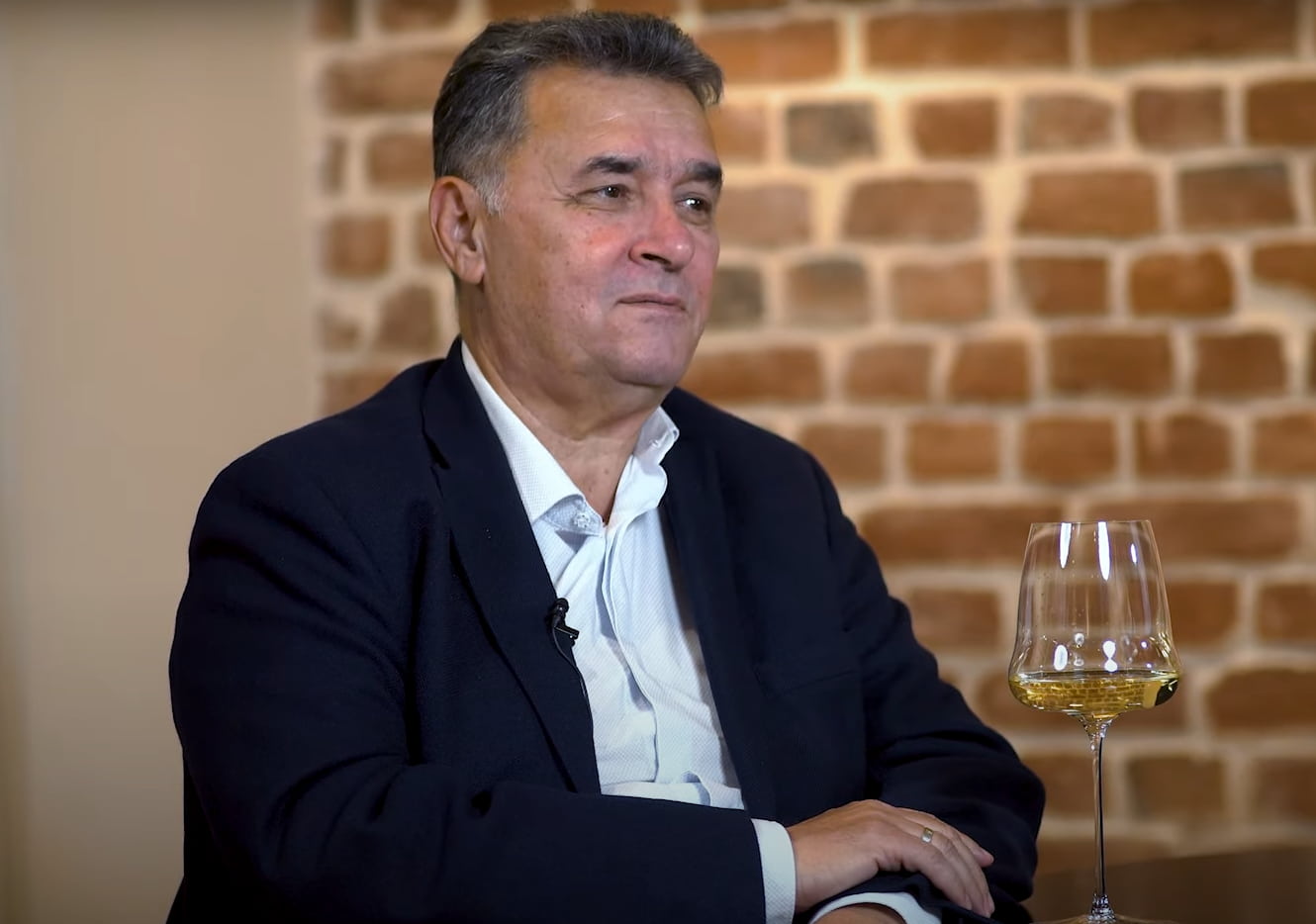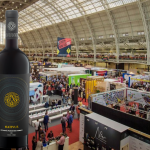Apparently, we are approaching a critical point where Romania will become too small a market for the premium wine produced locally. Imports help the evolution of local producers, but they are also a source of pressure, and the need for export will become increasingly felt. Why don’t we exist on the international market? Why is Moldova more successful? Does it make sense to rely on the Romanian state? About all this and more, with Marius Iliev, CEO of Vintruvian Group.
Wines of Romania: The discussion about Moldova so far has covered two serious aspects related to legality and identity theft. If tomorrow things started to function normally in Moldova, how much would Moldova lose from the Romanian market?
Marius Iliev: I haven’t made any calculations if they would lose, and that’s not the intention. The intention is for us not to lose. Yes, so I’m not interested in what the consequences are for them by being made to follow the same rules we follow. If we talk about the non-use or strict legal use of the Crama Ceptura brand, that doesn’t mean those volumes will be lost; they will just have to be sold under another trend. Ok, rebranding involves some costs and maybe some short-term volume loss. But that is, how to say, the natural consequence of breaking a law, just as if I drive fast, run a red light, get my license taken, and then complain that I have a lot of business to do with my driver’s license. Ok, but you have to accept that. If we talk about this violation, I cannot and do not want to evaluate what the losses are. But our losses are there, especially the losses of those in Ceptura, who have invested tens of years and a lot of money in developing that brand.
Wines of Romania: This evaluation was more of a surface-scratching question for another phenomenon. Moldova’s export strategy is, without a doubt, a clear success. Even if Romania has become the main market after Ukraine was lost due to the situation there, Moldova also has a more significant presence in European markets than Romania. There are a few causes, and that’s what I want to discuss. About participation in fairs and competitions, state support, strategies… When I researched the history of Moldovan wine, I saw that there have been laws since the early 2000s, where the state clearly stated how the group of tourists for 1-2-3 day trips is organized. Monastery x, winery y, monastery a, winery b, back to the city. And the law clearly stated what you need to have to be included in the circuit – we pave the road to your gate, you need to have a concrete platform for parking, a reception room, a sommelier, proper glasses to enter the tourist circuit. No one forces you – if you want to enter the circuit, this is what you need to do. They outlined some strategic and infrastructure aspects long before us, and that was for local tourism. What happens with export, where does their success come from, and our lack of success, here I feel there are issues to discuss.
Marius Iliev: There are several reasons why they are successful and we are less so. One reason lies within the industry itself, let’s say, in that it has not mobilized and associated sufficiently well in dynamic structures to address this issue.
Wines of Romania: I wanted to discuss the association among producers as a separate topic, but since we’ve started…
Marius Iliev: Okay, if we were to discuss it today, this structure that could manage the country brand, whether internally or externally, has been created—or constituted or reborn, if you will—from the old APEV. And I believe that, in terms of the will and involvement of the members, it is something…
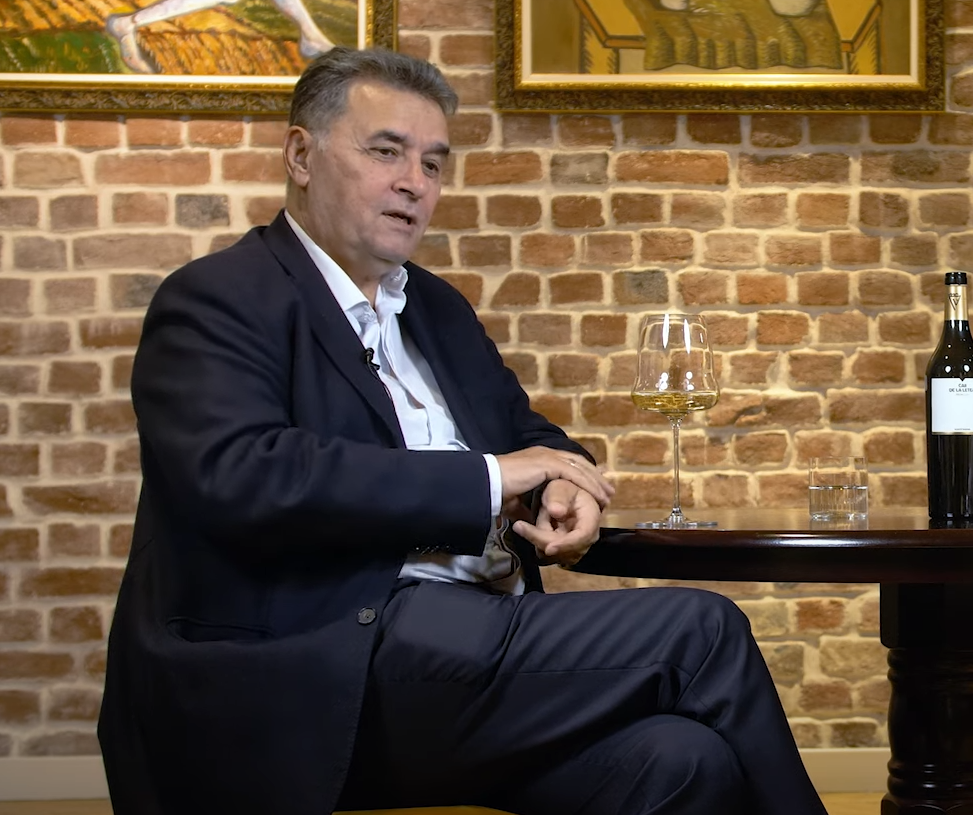
Wines of Romania: How many active members does APEV currently have?
Marius Iliev: There are about 30 now, but I think this number will grow. We were over twenty at ProWein, and two of our wineries were not there because they weren’t ready yet. There are a few who are members but didn’t participate in ProWein… Around thirty-something, but it’s growing because people have seen that there is some excitement and it’s okay.
Wines of Romania: I’ve seen excitement and I have seen associations come and go…
Marius Iliev: Whether there is resistance remains to be seen. But I think people are quite focused on export now, as the amount of premium wines in Romania grows, the need for export becomes more pressing, because the Romanian market, and no market in general, can absorb everything in this category. If France had to sell all its premium wines in France, the prices wouldn’t be anywhere near what they are today. So an international market is beneficial, regardless of the situation.
Wines of Romania: That’s an optimistic vision for an institution just starting out, let’s say 30-something members at the moment. So, to stay optimistic: we have over 500 wine producers officially, or that many companies have declared it as their activity. I don’t know exactly how many are active, how many have their own winery: what is the maximum number we could hope for, in the best-case scenario? How many wine producers could ever act together? 150?
Marius Iliev: The answer to that question is almost all of them. But there is another condition, which is financing. Let’s not forget that in the Republic of Moldova, since we are making a comparison, there is quite significant financing for activities, coming from various sources, USAID, through Wines of Moldova, the Moldovan state, the Republic of Moldova.
Wines of Romania: Do you have any idea about the size of these budgets?
Marius Iliev: No, I don’t know the size, but it’s large, let’s put it that way. For example, if we compare the stand they had at ProWein, and that’s just one of the fairs they participate in, there are all these events in Romania that they also attend… So it’s quite a significant budget, because all these participations are supported to a certain percentage, I understood, 50%, but I can’t say for sure. With such an effort from the state, there is more and more interest from the producers—and that’s just one component, the component of actual participation, then we talk about the promotion and communication component. There is a big difference. When we were at ProWein, for example, we also had coverage in Decanter, and the costs for such appearances are very high. Sure, you can do it once, demonstratively. But to maintain continuity, because in communication, continuity is even more important than a one-time big bang… That’s another component.
Sure, there are some funds in Romania dedicated to such activities, participation in various events, and our participation in ProWein was supposed to be covered, and other two-three…
Wines of Romania: That’s one of life’s mysteries. How did the funding get lost? Was it in a drawer and got misplaced? We had the same issue in Bordeaux a few years ago…
Marius Iliev: I wasn’t directly involved in the procedures for obtaining the funding, but I believe that due to bureaucratic reasons, certain conditions couldn’t be met to secure this funding. Or, at least officially, that’s what was declared. Those funds, okay, maybe they weren’t available at that moment, or there were other issues of that sort. But generally, this funding existed.
Wines of Romania: It’s not like they don’t know ProWein happens every year…
Marius Iliev: AThis source has traditionally provided funding contributions late, at the eleventh hour, and at the eleventh hour, you can’t do many things. You can’t do them with the same efficiency or costs that you could have done earlier. And that’s why, in fact, we had to come up with the money ourselves because, in the desire to take full advantage of early booking benefits, APEV had commitments, contracted spaces, various items, communication, etc. If those commitments hadn’t been fulfilled, it would have been a disaster, an image disaster, and more. Probably in the following years, it would have been much harder to rent a space. Incidents like this would have been known elsewhere too… So, the APEV members decided to step in with their own resources, 100%, to save the situation.
Wines of Romania: I remember a few years ago in Dusseldorf, the APEV stand had its power cut off on the second day of the fair because the space hadn’t been paid for. Doesn’t that state institution know that Dusseldorf, Shanghai, Bordeaux happen every year and APEV needs to be there? Don’t they prepare, budget for this, have any budget projection, or does an APEV representative need to constantly remind them, “Hey, check those papers, the day is coming”?
Marius Iliev: Certainly, for all projects where the funding has to go through the state or a state agency, there is a considerable amount of bureaucracy. In fact, the merit we could give APEV is that it tries to solve this bureaucratic problem. Sometimes it fails. Like in this situation, it failed at the last minute when it was announced there were no funds. But I can’t say for sure; you should talk to Mihnea Olariu, as he handled it, and I don’t know all the details.
Wines of Romania: Mihnea Olariu gave a diplomatic response…
Marius Iliev: Well, it’s clear he doesn’t want to antagonize anyone… Because it seems they will fund other participation at other fairs. We have participated in the past, for example, in Shanghai, and it went well. Indeed, we always advanced, we paid… That is, we didn’t wait for the funds – whether they gave it to us or not, okay, we fulfilled our responsibility. But you can’t do that on a large scale in the long term, or it becomes a prohibitive cost, because everything related to developing a country brand, when you see those two, three pavilions for a country at fairs like ProWein, how Italy, France, etc., present themselves. Those are supported with government and/or European funds.
Wines of Romania: And we’re talking about a different number of producers, different volumes produced…
Marius Iliev: Clearly, there is an effort by producers, who send representatives, wines, but there is a significant effort by the state, yes? There, wine regions are promoted, if you will, Burgundy, for example, is promoted every day somewhere in the world, something about Burgundy, or Bordeaux, or Tuscany, or Australia, New Zealand, etc. Developing a country brand is a very important matter for governments, usually, and it’s their responsibility, on one hand, and certainly ours, on the other hand, because we are also beneficiaries, right?
Wines of Romania: Can we make a clear statement? Producers alone cannot build a country brand?
Marius Iliev: No, producers alone definitely can’t do it, in this climate, where everyone else is using funds from outside the business, we would be at a competitive disadvantage if we did this 100% with our own funds.
Wines of Romania: Is there a possibility of accessing partnerships, say, with banks, industries, related industries? An integration with tourist associations…
Marius Iliev: There are always such possibilities, but I believe the solution is the classic one, where the state provides funding, under certain conditions, and asks the beneficiary to contribute a certain share.
Wines of Romania: But the state should significantly increase and promote those budgets.
Marius Iliev: To understand, this country brand for wine doesn’t only benefit wine. It generally benefits Romania, because of all the food products that exist now, the only one that sits on the table with a label and origin indication is wine, among everything that sits on the table. Otherwise, yes, you have meat, sure, it’s good, it’s from Romania, but someone has to tell you about it. With wine, no one needs to tell you, because you see the bottle there, on the table or in an ice bucket. It’s the only product, and then it can be a kind of ambassador for the general country brand, not just for wine.
Wines of Romania: Realistically speaking, we can say anything, 100 million dollars… What would be a starting point, financially speaking, for our construction? The state’s contribution, that is?
Marius Iliev: Tens of millions of euros per year, yes? So not one or two million.
Wines of Romania: And in these conditions, if the state gives 20 million, 30 million, say, can the industry come up with another 30 to double it?
Marius Iliev: Well, it doesn’t necessarily have to be that ratio, why? I’m talking about how much it should be, how much it’s optimal to be, how much it’s good to be. Sure, as an industry you’d want it to be as much as possible, for the state to do this for you, and for you to do as little as possible, let’s say, financially speaking.
But it’s clear, to your question, if the industry could also come up with half of that money, my opinion is no. Especially since it’s a gradual process, it’s not like you decide to build the country brand this year, put in 30 million and that’s it…
Wines of Romania: That was my next question: if we start now, and invest gradually, let’s say the industry and the state start with 20-30 million… How many years does it take?
Marius Iliev: Some effects will be visible immediately. For example, when we participated in ProWein for the first time, we had leads, some of which turned into orders, and probably at the next edition, those who didn’t place orders might see us again. So, a normal process… How long until we see… I think it’s a permanent thing, but until we see gradual success, some small successes, or the seeds of future successes – we can see these immediately. But I believe that in 3 years, 4 years, maybe 5 years, there will already be very visible results.
Wines of Romania: At least we need to reach the level where distributors and consumers from major European countries become our destination, because I assume we will export less to Italy and France and more to Germany and others…
Marius Iliev: Let’s not forget that we, as a country, have a significant disadvantage compared to other major wine-producing countries in Europe, like France, Italy, Spain, Greece, because we don’t have tourism at that level. Tourism is a very good way, a very good showcase for exposing products and the country brand, and regional or company brands. So somehow, we have to work harder to achieve this.
Wines of Romania: So we come back to the first question: in Moldova, from the early 2000s, the state said: “I’ll cover you up to the door, you need to do this and that.” Right now, you mentioned in the interview with Vinul.ro that significant investments in wine tourism are emerging… Is there even the vaguest discussion between someone in the industry and someone from the state, to tell them “Hey, on the Moldova highway, don’t you want to act there because these people are opening hotels and guesthouses” or “let’s widen DN1A”?
Marius Iliev: No, I don’t know of any discussions. There are no discussions that we are aware of at the moment, I don’t know. Maybe there are, maybe we are just starting our investment project because we are among the latest to join this industry, among the larger players, in terms of volumes, turnover, etc. But maybe others had such discussions before – but it’s clear that this applies not only to the wine industry, to wine tourism, it applies to any kind of investment project you make, to have cooperation from local or central authorities, to solve infrastructure problems without which your project cannot function. So somehow, in the minds of many politicians here – I saw, since the local elections just ended – there is this idea that the entrepreneur should take care of, build kindergartens, roads, sewers, and who knows what else. Just because they built a block or a guesthouse, or a house somewhere. No! These are responsibilities of the state or local authorities.
Wines of Romania: But this automatically leads to an explosion, a rapid horizontal development, because, okay, the person has a vineyard, when they open an accommodation facility, bringing in tourists, they have to provide them with food, and here everything is local sourcing because there’s no point in going 30 km to the supermarket, they get the pork from the neighbor, who then raises five pigs a year instead of one.
Marius Iliev: It’s no secret that tourism leads to development, and not only that, it creates great added value.
Wines of Romania: I’m sure foreign tourists would enjoy it too…
Marius Iliev: It’s one thing to make a pen, where inputs are 0.90 RON and you sell it for a dollar, and another thing to go there, charge 100 euros a day, provide meals, lodging, and so on, and the husband and wife come, they are served, their dishes are washed, their food is cooked… You get ingredients worth 10 euros and the rest is for services. All these services represent added value, much higher than in other industries. But that’s why maybe the state should understand that wine tourism is very promising in terms of economic development.
Wines of Romania: And we return to the collaboration between producers. Three, four producers in an area could buy a minibus, share it, house people in the nearest town, take them from winery to winery, and bring them back to town… At least that way they could start building a name as a destination?
Marius Iliev: Theoretically? Yes! Practically? Not really. I don’t even know if it’s the best solution, because if there’s a need for that service, there’s probably someone in the market willing to provide it. There’s an economic concept that deals with this exactly, that a need will try to be served if it exists in the market and can be covered efficiently. Otherwise, sure, for producers to associate in such ventures, like buying a minibus to transport tourists, they would have to get into a field that is not specific to them and they are not knowledgeable about. Plus, they would have to deal with seasonality, periods of high demand followed by total silence. For example, if you have tourists on weekends, then Monday, Tuesday, Wednesday, you have nothing to do with that minibus. What do you do then? You have to pay the driver, pay the leasing or bank rates on time. And during the non-operational period, maybe it’s winter, maybe the roads are non-functional – there are probably companies that have transport firms and can do these things instead of you.
Personally, I support this kind of collaboration. As you said earlier, if you go to an area, it starts developing there, one person sells you vegetables, another sells you pork, and so on. It doesn’t mean that we, as wine producers, have to make vegetables, pork, and… Similarly, with transport, sure, there are exceptions. If there are two or three wineries in a certain locality, they are close, and have a load for 4 days/week. They calculate that it costs them less to do it this way, but these are particularities, generally it doesn’t work like that. Generally, there are service providers who fit this market need, but you need to create that service need. For example, we saw at Evadare in Dealu Mare (Escape to Dealu Mare), various service providers were sought, some to come with catering, some with transport…
This effort comes from the producers or those hired by the producers to organize the event, it’s not something that comes from the market and says, okay, let me take care of this now… Because first, it needs to be something constant, for someone from the market to come, for you to have a project, for things to happen, for there to be a sufficient degree of asset utilization to justify an investment from a private firm.
Wines of Romania: Maybe it’s not the best example of collaboration, but still, we know this has been a problem for more than 20 years. I sincerely hope the optimism about APEV is justified, but the question is: what has stopped us from associating so far? I don’t want to generalize and say that’s how it always is with us, the neighbor’s goat is fatter… After all, we are a hospitable nation that offers the best to a person who enters the house. But when it comes to associating…
Marius Iliev: It’s clear, but it’s hard for me to make an objective analysis of the causes that have hindered or prevented us (from associating). The fact is that as I perceived how APEV worked until this reorganization came, it was not something that inspired me or with which I wanted to associate myself. As soon as things changed, in leadership and philosophy and mode…
Wines of Romania: What has changed in APEV’s philosophy, actually?
Marius Iliev: First of all, the dynamism and this strategy of doing things according to today’s standards have changed in APEV’s philosophy. I mean, not a reactive thing, that, come on, the government gives us one or two million lei at the last minute, we do anything, take the stand there, rent it next to the toilet, it’s okay, let’s do it. No! That’s an unprofessional thing and that’s why I refused to associate. Here, we talked about something else, about a longer-term strategy, in which members participate with amounts that allow the hiring of a more competent executive management to attract funds, to organize these events professionally and, well, the communication, also, to exist at a professional level and somehow led from within.
You can’t go to some magazine and say, okay, you do the communication for us, give me an article and you’re done… No, it’s about a lot of thought behind it. This thinking did not seem to me, but maybe I’m wrong – but if I’m wrong, it means they didn’t know how to attract important clients, like us, right?, for the association, we, the producers, can be considered some clients who need to be convinced of the services they offer… This thing has changed recently, about a year ago, and we decided to contribute to this effort…
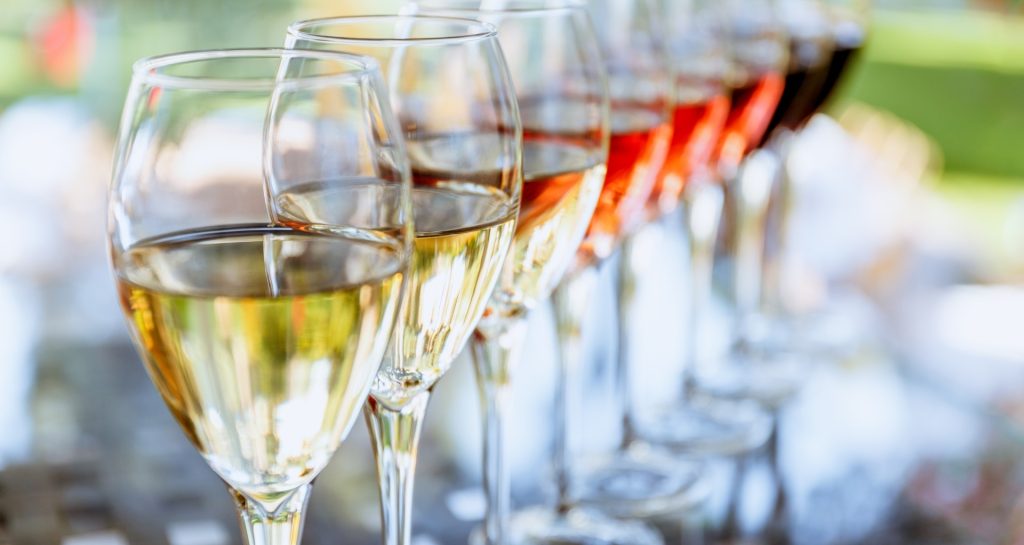
Wines of Romania: Before, APEV wasn’t convincing, maybe even the state’s budget for participation wasn’t convincing…
Marius Iliev: It’s the same budget as before!
Wines of Romania: We had a winery owner as Secretary of State in agriculture, yet no one puts wine on the priority list in this country…
Marius Iliev: We had not just one, I think several… If you’re referring to Rădulescu… There’s also Mr. Albu from Viișoara, who’s also… It’s a struggle against this mindset some government officials have, who declaratively say this. In any meeting with officials you attend, you’ll hear these slogans. The reality shows that, in fact, wine is the last priority for them… What can I say? Today, for example, a year has passed since the order for investments should have existed. The subsidy order still hasn’t been published, something from the Strategic National Program, approved by the European Commission, right? And we still don’t have the order based on which we can operate. Besides investments in cellars and, well, in the vineyards, in conversion and restructuring, that’s functional now… But there’s also a support component for promotion, right? For promotion, there’s a tiny budget allocated this year, but it’s something more than nothing up till now, right? Even in the past, accessing these funds, through this program, was very difficult and the money wasn’t really spent on that area. That is, it wasn’t used by producers because it was a difficult program.
Wines of Romania: What makes it difficult? I mean, I get it, okay, a ton of paperwork, but…
Marius Iliev: Once it’s approved, then the restrictions regarding what you can and can’t do. Well, I didn’t access it because consultants always discouraged me about the bureaucracy involved in that program and the fact that you could only go to certain places – for example, non-EU destinations… I don’t have all the details, because consultants have always discouraged me, saying it’s a nail in the shoe for me. The proof is that very few accessed this program.
Wines of Romania: And shouldn’t this have been negotiated with the industry beforehand or subjected to debate?
Marius Iliev: Yes, unfortunately, at that time I wasn’t part of those bodies. Today things are different; I’m a member of almost all the important associations for this industry, whether we’re talking about APEV, ONIV, the associations of producers from Dealu Mare, Drăgășani, Dobrogea, and so on. Essentially, we are very active members in all these associations.
Because you need, alongside your brand – we are essentially a company very focused on marketing, we want to communicate, to show what we can do and why a consumer would feel good with our products – but besides that, the region is important, the country is important. Depending on whom you target. It’s much easier to draw attention to yourself when you say you come from Dealu Mare, for example, or from Drăgășani. So it’s important, and something more than just the brand of the company or product.
Wines of Romania: Alright, there have been stories with the providential man, maybe you are even that one, I keep my fingers crossed for you, I know the energies exist, they are there and must be aggregated. There are also some young people, some from the second generation, perhaps more prepared than their parents who learned everything as they went. However, over all these years, I have seen many people uniting so as not to let one person climb too high. Not necessarily in the world of wine, but in general.
Marius Iliev: Now, it’s possible that the rise in imports, which is quite significant, and we’re not just talking about Moldova, but other imports as well, may generate an additional stimulus to seek new solutions. I’ve always been of the opinion – I’ve made various statements over time – that imports are too small in Romania.
Wines of Romania: Doesn’t it stimulate the local market enough?
Marius Iliev: There needs to be a bit more competition. Why? To somehow force us to get out of our comfort zone. In fact, we started efforts to export around 2019. Unfortunately, our wings were immediately clipped by the pandemic; all our contracts and participations were canceled… And then we resumed, now we are quite active, on our own and as a company, in several important markets.
Wines of Romania: What does your intuition say about this? Is it good to rally behind one locomotive, or two or three locomotives, in this export drive, or should we communicate symbolically, with the top figures?
Marius Iliev: Well, how should I put it? It’s both… I mean, locomotives, what? The national brand, or one producer, two or three?
Wines of Romania: Two or three producers with strength…
Marius Iliev: It depends on what "strength" means, because look, a strong producer is Recaș, for example, but they have a certain strategy, not suitable for all producers. Other producers who could come, I don’t know, I won’t name names, with a wine rated 100 points by Parker, for example, and they start to become a force in the entire region they come from, because they’ve obtained this certification.
I mean, top figures, yes, there can be many, but the strategies are different. I’ve always said the main problem, we have a mindset in this industry, and I’ve seen it in many producers, is that they think you could do things differently for export than you do here, on the domestic market, to be successful. And my opinion is that if you’re successful here, you certainly won’t be successful abroad if you do things differently than you do here with success. That is, the market needs to be built, whether you’re domestic or export.
That is – to say you’ve sold some wines, exported five pallets, a truck or a container to an importer from some country… And that’s it, you’ve washed your hands and wait for the next order, in a month, two, seven months. That’s a wrong approach.
Wines of Romania: Representation, promotion are needed…
Marius Iliev: Importers, distributors… They will maximize their own interest, and you are one of those they represent. They won’t have the same dedication as you to do things for you, unless they do it exclusively. If their existence depends 100% on you, then they might do it, but they might not do it well. And then, you have to be very involved in this subject, especially when talking about wines… Not when talking about very cheap wines – we receive such requests all the time, to sell wines for one euro. Then it’s easier, sell by price. Today you sell, tomorrow the neighbor sells, the day after tomorrow someone else, depending on who offers the lowest price. We didn’t want to be that kind of business, so we started developing premium segments, super premium. Slowly, with work, with expense. And that’s another thing: you have to afford it, to be able to share part of this expense, supported by various public funds, European or national funds… One thing is certain, this system doesn’t work – come to my winery, I’ll give you a pallet of goods and then – you know where to find me. No problem! So that doesn’t work.
***
Here ends, for the moment, an interview about (yet another) a series of topics that seem to undermine one of Romania’s most important resources: wine. Which is a bearer of the country brand, but also of history, emotion and tradition. Wehope that we have aroused your desire to comment and to bring to the public light the real problems of Romanian wine.
